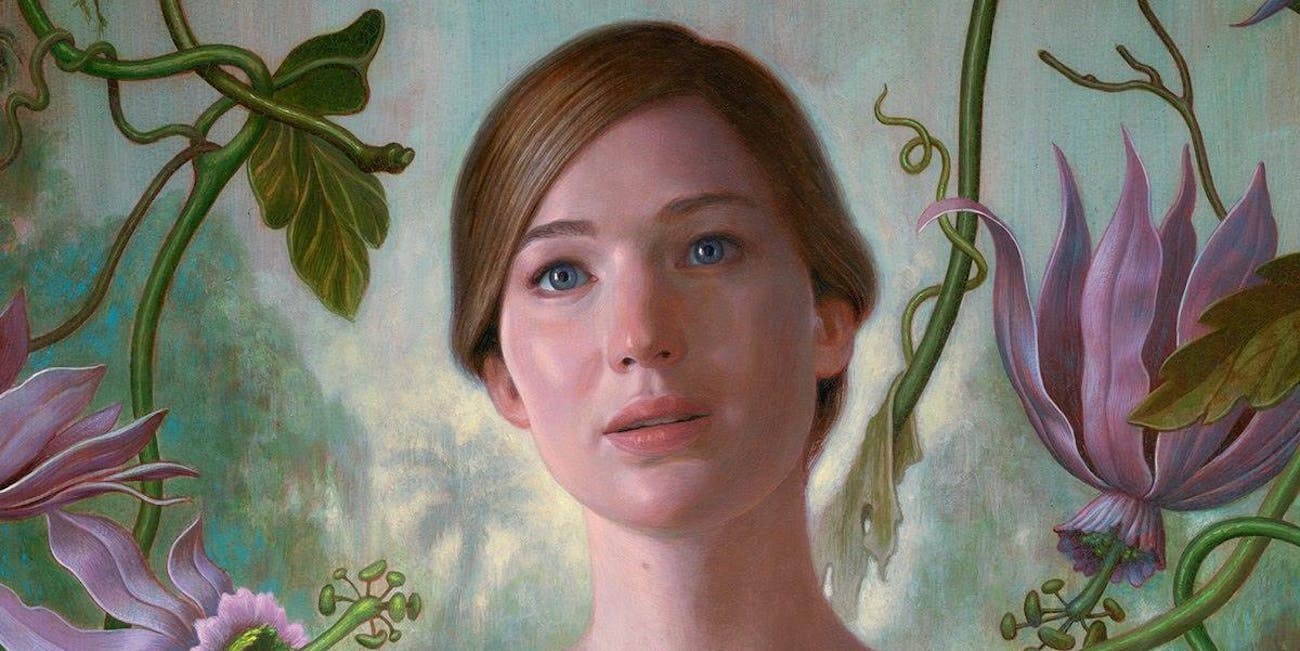★★★★
Darren Aronofsky’s much
anticipated new psychological thriller, Mother!, has certainly
been met with a whirlwind of controversy. Tearing film critics and audiences
alike apart, the film has attracted reviews that have simultaneously called it
one of the best and worst films ever made. But is it really as insane (and brilliant)
as everyone is saying?
Depicting a story of
love, devotion and sacrifice, Mother! is rife with allegorical
imagery that is set to have you discussing it for hours after viewing. Starring
Jennifer Lawrence, simply characterised in the film as ‘Mother’, the film
presents itself as a tale of domestic bliss with Lawrence’s character
desperately and delicately restoring a house, which was once her husband’s
family home, before a fire destroyed it. She is married to the much older
character, ‘Him’, played by Javier Bardem, a poet tortured by an intense bout
of writer’s block which forms cracks in the foundation of their marriage and
soon, their home.
It is after the arrival
of Ed Harris’s character, ‘Man’, and shortly afterwards, his wife (Michelle
Pfeiffer), that the once tranquil house turns into a site of chaos.
Aronofsky’s Mother! is an assault on the senses, beginning
quietly with just an underlying feeling of unease before it builds up to its
crescendo of mania and horror. The last thirty minutes of the film will have
you reeling and writhing in your seat, at once covering your eyes to prevent
yourself from seeing the terrifying events before you, whilst simultaneously
paralysed with curiosity. It’s like a car crash; you just can’t look away.
In the lead up to the
film’s release, the marketing made extensive efforts to keep as much ambiguity
as possible surrounding the plot. The film’s first theatrical poster saw an
angelic illustration of Lawrence, the devoted wife, holding out her own heart that
she had seemingly ripped from her chest, hauntingly smiling with pleading eyes.
Bardem’s poster was equally enigmatic and saw him surrounded by fire.
Anyone hoping for more
of an explanation concerning the nature of the film were hard done by when the
first trailer rolled around. It was an intense succession of noises and
visuals; screaming, shouting, the sound of destruction overlaid with a ghostly
Lawrence as she paces around the house. It was a film that garnered an
incredible amount of attention and intense debate before it had even been
released. Critics, the press and audiences demanded answers, constantly
speculating, the human lust for knowledge being challenged by Aronofsky who
remained smugly tight-lipped.
It’s that inherent
self-righteousness that humans possess which is at the forefront of Mother!.
A film about the destructiveness of human nature and our ability to harm
something so kindly gifted to us in the first place. An astounding reflection
on the treatment of the earth depicted almost simplistically through a domestic
setting.
In my opinion, Darren
Aronofsky’s film is utterly brilliant. That isn’t to say that Mother! did
not have a tendency to become too obvious in its use of allegory, because it
did. The use of symbolism to represent Biblical interpretations and
environmental issues was undoubtable clever, however they soon became
predictable and, after a while, handed the deeper readings to you on a plate.
At points, it felt self-indulgent in its cleverness and insanity to the point
that it became slightly cliché and try-hard; further self-indulgence stemmed
from the fact that you could literally place Aronofsky in Bardem’s place to
create a story about the struggles of art.
Regardless, I cannot
remember the last time I came out of the cinema so affected by a film I had
just seen. I was left both speechless and desperate for discussion all at once
– a definite sign of a good film.













